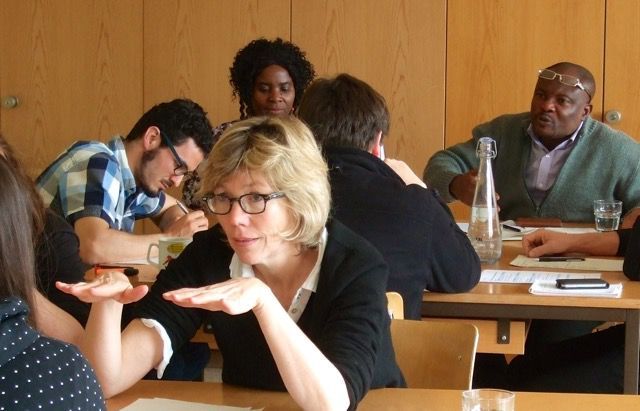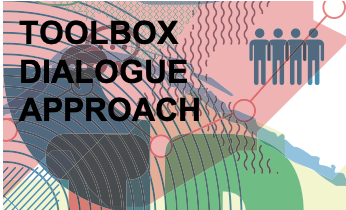Toolbox dialogue approach
A tool to uncover implicit assumptions and shared understandings of research and practice disciplines and to oppose them to the thought styles of other disciplines.
Pohl C 2020. Toolbox dialogue approach. td-net toolbox profile (12). Swiss Academies of Arts and Sciences: td-net toolbox for co-producing knowledge. www.transdisciplinarity.ch/toolbox. doi.org/10.5281/zenodo.3717505
| What is the toolbox dialogue approach? | The toolbox dialogue approach consists of a set of questions and statements (i.e., the “toolbox”) that are used to trigger dialogue in a workshop format. It helps researchers become aware of their own (disciplinary) thought style and the (disciplinary) thought style of their collaborators. |
| Why should it be applied? | Often, researchers of various backgrounds start from the assumption that they all share the same research and practice thought style. In fact, disciplines differ in what they consider a scientific method, a correct research design or a reliable source of evidence. The toolbox dialogue approach reveals these underlying assumptions by asking simple (philosophical) questions such as ‘What kinds of data constitute scientific evidence?’. Revealing the underlying assumptions and making them explicit enables deep mutual understanding and deliberation on what shared standards could be. |

| When should it be applied? | The toolbox dialogue approach is best used early in a joint process of knowledge production to lay a sound basis for collaboration. |
| How does it work? | A toolbox dialogue approach workshop includes the following basic steps: |
How are thought-styles bridged? | The toolbox dialogue approach bridges disciplinary thought styles by making underlying assumptions explicit so that researchers get a deeper understanding of their own and other disciplines' world-view. |
What’s the output/outcome? | For an individual, the outcome is clarity about disciplinary world-views. As a group, the outcome is clarity about different assumptions and positions. |
Who participates in what role? | A facilitator moderates the workshop. The researchers of the different disciplines involved in a project are the participants. |
What do I need to prepare? | Besides going through one of the papers to learn more about the toolbox dialogue approach, the only thing to prepare is the toolbox, i.e. the list of questions and statements used in the workshop. A set of open questions can be found in Eigenbrode et al 2007, and sets of statements to be answered by scoring Likert scales in Schnapp et al 2012 and O’Rourke et al. 2014. |
When not to use the method? | The toolbox dialogue approach was originally designed for a heterogeneous group of researchers. The prompts address issues researchers are familiar with, but not other societal stakeholders. The original toolbox should therefore not be used in heterogeneous stakeholder groups. Currently, however, further toolboxes are being designed to enable dialogue among societal stakeholders. |


